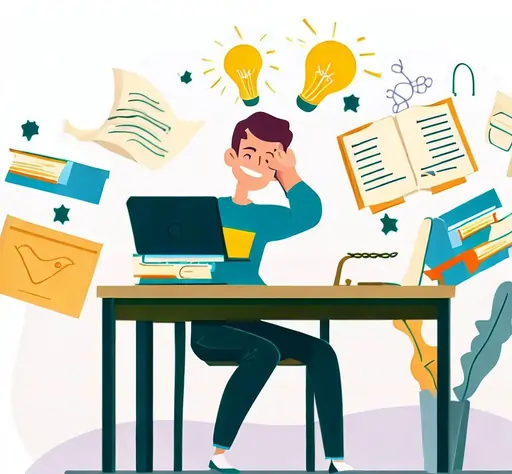Using Flashcards for Active Recall in Exam Revision

Understanding Active Recall
Active recall is a cognitive learning strategy that encourages the brain to actively retrieve information from memory instead of merely reviewing notes or textbooks. This process requires the brain to work harder to retrieve information, strengthening neural pathways and enhancing long-term retention. When students engage in active recall, they mimic the act of retrieving information during an exam, which ultimately improves their performance.

Flashcards: A Versatile Tool
Flashcards are an age-old study tool that has stood the test of time due to their effectiveness in promoting active recall. These cards typically contain a question or cue on one side and the corresponding answer on the other. Flashcards can be used to review various types of content, including vocabulary, concepts, equations, historical events, and more. Their simplicity and portability make them an ideal companion for students, whether they're at home, on the go, or waiting for their turn in a queue.
Benefits of Using Flashcards for Active Recall
Using flashcards for active recall provides enhanced memory retention and efficient learning by breaking down complex concepts into manageable chunks. Personalization options allow students to tailor their study material, while the engagement and adaptability of flashcards foster dynamic and effective learning experiences. Additionally, the implementation of spaced repetition techniques amplifies the benefits of this versatile study tool. Consider the following benefits:
- Enhanced Memory Retention: When using flashcards for active recall, the deliberate effort to retrieve information from memory strengthens the neural connections associated with that knowledge. This, in turn, enhances the brain's ability to recall the same information during exams and assessments, leading to improved long-term memory retention.
- Efficient Learning: Flashcards break down intricate concepts into manageable and concise portions. This approach prevents overwhelming information overload and enables students to focus on understanding and mastering one concept at a time, facilitating more efficient and effective learning.
- Personalization: Crafting personalized flashcards aligns your study material with your unique learning style. By prioritizing challenging topics or areas needing extra practice, you tailor your study approach to suit your strengths and weaknesses, enhancing your overall comprehension and retention.
- Engagement and Active Learning: The tactile act of flipping a flashcard and attempting to retrieve information actively engages multiple senses, making the learning process more immersive and engaging. This active participation deepens your understanding and promotes dynamic learning experiences.
- Adaptability: Flashcards offer the advantage of adaptability. You can shuffle the cards or rearrange them to present information from different perspectives. This prevents the reliance on rote memorization and encourages a thorough understanding of the material, as you're prompted to recall information from various angles.
- Spaced Repetition: Incorporating spaced repetition techniques with flashcards involves reviewing them at specific intervals. This strategy leverages the spacing effect, optimizing memory retention by revisiting information just before it would typically start to fade from memory. This ensures that the information remains fresh and accessible over extended periods of time.
Maximizing Flashcard Effectiveness
To maximize the effectiveness of flashcards, aim to create concise questions and answers, incorporating visual aids where applicable. Utilize spaced repetition software to strategically schedule review sessions and maintain consistency in your study routine. Active engagement with each flashcard, attempting to recall information before checking the answer, further enhances the benefits of this active recall technique. Moreover, consider the following practical tips:
- Create Your Own Cards: Designing your own flashcards offers a dual benefit of understanding and retention. The process of condensing complex concepts into succinct questions and answers requires a deeper engagement with the material, solidifying your comprehension.
- Succinctness: Maintaining brevity in both the question and answer portions of your flashcards is crucial. This simplicity ensures that the information is easily digestible and can be swiftly recalled during the pressure of exams.
- Visual Aids: Enhance the effectiveness of your flashcards by incorporating visual elements like diagrams, charts, and images. This is particularly advantageous for subjects that involve visual learning, as the visual cues aid in memory recall and reinforce understanding.
- Variety: Inject variety into your flashcards by incorporating different question formats, such as multiple-choice, fill-in-the-blank, and short explanations. This diverse approach challenges your memory from multiple angles, strengthening your recall abilities.
- Spaced Repetition Software: Leverage the capabilities of spaced repetition apps or software, such as Anki or Quizlet. These tools intelligently schedule flashcard reviews based on your performance, ensuring that you revisit and reinforce information at optimal intervals for enhanced retention.
- Consistency: Establish a regular routine for flashcard study sessions. Consistency is pivotal in harnessing the benefits of active recall. Regularly engaging with flashcards over time solidifies your understanding and contributes to long-term memory retention.
- Active Engagement: Strive for active participation when using flashcards. Rather than passively flipping through them, actively attempt to recall the answer before verifying it on the reverse side. This engagement deepens the learning process and reinforces memory connections.
Conclusion
In the world of exam preparation, where information retention and effective learning strategies are paramount, flashcards have proven to be a reliable ally. The utilization of active recall through flashcards helps students engage with their study material in a dynamic and efficient manner. By actively retrieving information, learners reinforce neural pathways, enhance memory retention, and boost exam performance. As technology evolves, digital flashcards and spaced repetition apps offer even more flexibility in implementing this effective study technique. So, whether you're tackling complex equations, historical dates, or new vocabulary, harness the power of flashcards and active recall to make your exam revision journey both productive and successful.